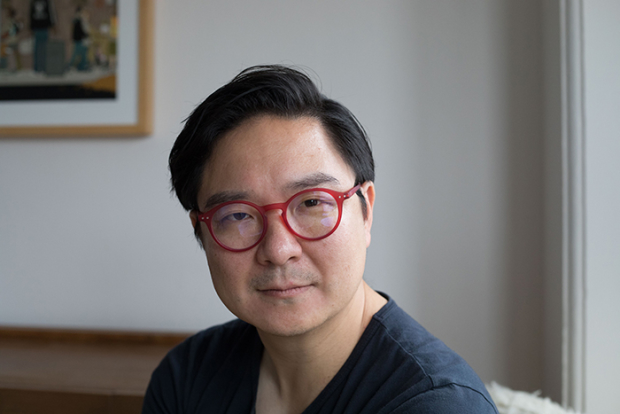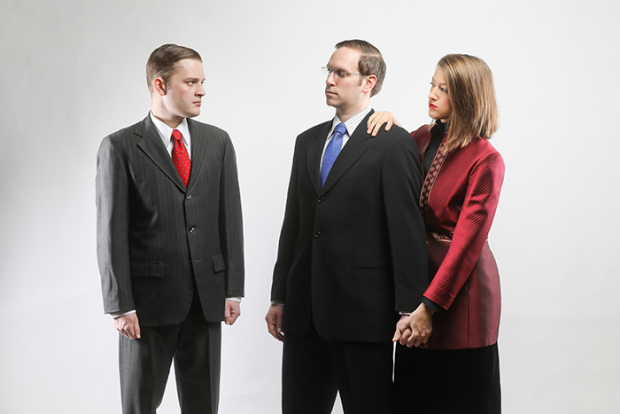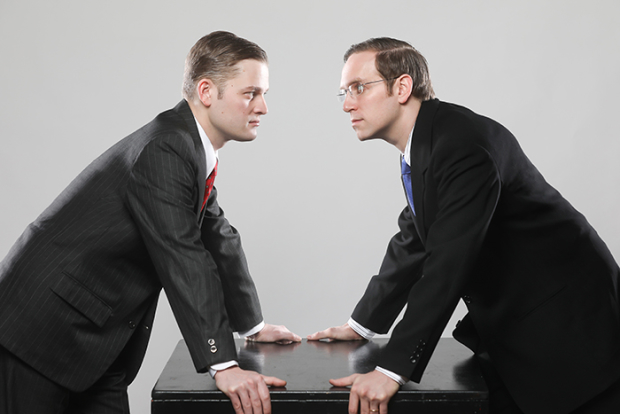Playwright Kenneth Lin on Getting Inside the Mind of an Oligarch
The ”House of Cards” writer examines who holds the cards in Russian politics.

(image provided by Arena Stage)
In late 2014, I was writing for House of Cards, a sharp-elbowed television show about Washington that played alongside the divisive, obstructionist brand of politics that calcified during the Obama years. Entrenched in this world, I began to think about all the lost opportunities that were the casualties in these machinations. It was in this moment that I was approached by producer Robert Ahrens to write a play about Mikhail Khodorkovsky, a fascinating figure who became the richest man in Russia during the chaotic Yeltsin years. He nearly opened Russia to the West before he ran afoul of the political buzz saw known as Vladimir Putin. I was floored. To my eye, it was the biggest lost opportunity in modern history.
In the early aughts, Khodorkovsky nearly merged his Russian oil company Yukos with an American oil company. If he succeeded, he would have created the largest oil company in the history of the world. The United States and Russia would have been united in a mutually beneficial venture with economic, diplomatic, and political implications that would have redrawn all the lines on the map. Of course, we all know that this venture failed, and the United States and Russia have only moved further and further apart. Why?
To attempt to answer this question, I began a deep-dive crash course into Russian history and politics. What I found was the origin story of a young Vladimir Putin, newly thrust into power. In battling Khodorkovsky for the ideological and political soul of Russia, Putin was in the fight of his life with a political opponent who had as much power, wealth, and influence as the entire state (as well as the backing of the West). By the end of this struggle, Putin's victory would be complete. He would have consolidated his power and vanquished his rival to a prison in Siberia for a decade. But, at what cost to Russia and the world?

(© Tony Powell)
This watershed historical moment became the cornerstone of the play, Kleptocracy, which took me about a year to write. Then, the 2016 elections took place. Politics became more divided than ever and strongmen came to power throughout the world. More and more, Russia — which had faded in our national consciousness — became insinuated in our daily discussions about the vitality of our democracy. More and more, Kleptocracy became less a play about a fascinating slice of Russian history than a parable about lost opportunities for cooperation, diplomacy, and progress here in America.
And yet again, Kleptocracy is also a personal story about a man who chose to dissent and remain in prison instead of fleeing with his billions. By all accounts, Khodorkovsky was no saint. He was known as one of the most ruthless oligarchs in Russia, and some have even accused him of murder. So, when he had a way out, why did he stay in prison?
In interviews, Khodorkovsky flicks away notions that growing up with a Jewish father affected his trajectory. But it's a fact that he was stymied in his academic life because of his heritage. Moreover, the casual, yet virile, anti-Semitism that I heard when I asked some Russian acquaintances about Khodorkovsky struck a chord with the racism that I experience as an Asian man in America. I know what it is to feel like no matter what you do, you will never belong. What would I do if I amassed great wealth and power and created historic conditions that would reform a nation in my image, thereby cementing my place? Could I walk away? I'm not sure.

(© Tony Powell)










